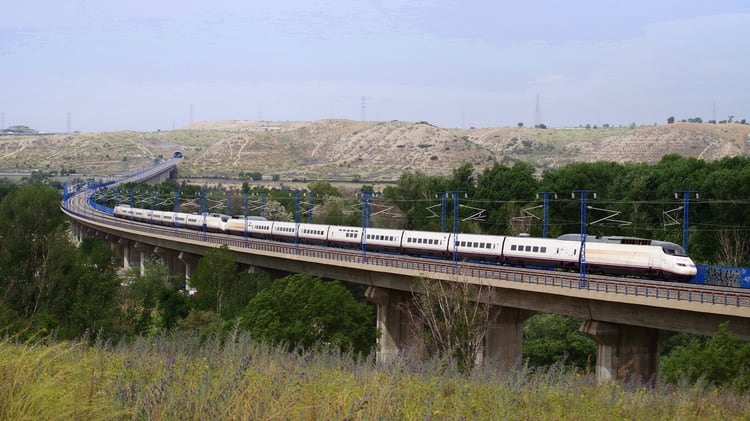The Diplomat
The French ambassador in Spain, Jean-Michel Casa, defends that his country is not hindering the entry of Renfe or any other operator in its high-speed network, recalling that Trenitalia, Italy’s national railway company, already operates from autumn 2021 the route Paris-Lyon and up to Milan.
In an interview to Europa Press, the ambassador explained that the delays of Renfe’s debut in France are due to the signalling system that the Spanish company wanted to introduce in the country with its trains and that it is not compatible with the French network system.
I don’t want to criticise Renfe, but it complains a lot that there are obstacles, and these result from some technical choices, the main problem being the signalling system of the trains it wanted to introduce in France, which is not compatible with the system installed on the line from Paris to Lyon,” he said.
The diplomat argued that Ouigo, the French national train company already operating in Spain, has also had to delay its operations in Andalusia for the same reason, because the safety system on that line is not compatible with the European system that equips its trains.
“Ouigo has also had difficulties at the beginning, for example in gaining access to some workshops. These are normal things, because we don’t speak the same language, there are rules of public markets and public tenders to respect. In fact, Ouigo is going to run much slower in Andalusia because the signalling system that operates on the line is not compatible with Ouigo trains. So it is going to have to adapt and change its system,” he said.
Jean-Michel Casa said that in the coming years new lines will be opened up to competition, such as Nantes-Lyon and Nantes-Bordeaux, on which Renfe will also be able to operate, but he stressed that liberalisation is progressing as the capacity of trains, infrastructures and accessibility to the workshops are studied.
“Ouigo has done a very serious job here (in Spain) and it works perfectly. The trains are full and they have not stolen Renfe’s market, but have grown and democratised the market, lowering prices by more than 40%. Ouigo was convinced that Spain had almost the best high-speed network in the world, but that it was little exploited and had capacity for many more trains’, the ambassador defended.
Both Renfe and the public bodies it depends on, such as the Ministry of Transport and ultimately the Government, have criticised on several occasions the “lack of transparency” in France regarding access to the network, pointing out the “obstacles” placed in that country to its entry.
The Spanish operator plans to launch its high-speed connections between Madrid and Barcelona with Lyon and Marseille before this summer and to extend services to Paris by the end of the year.






